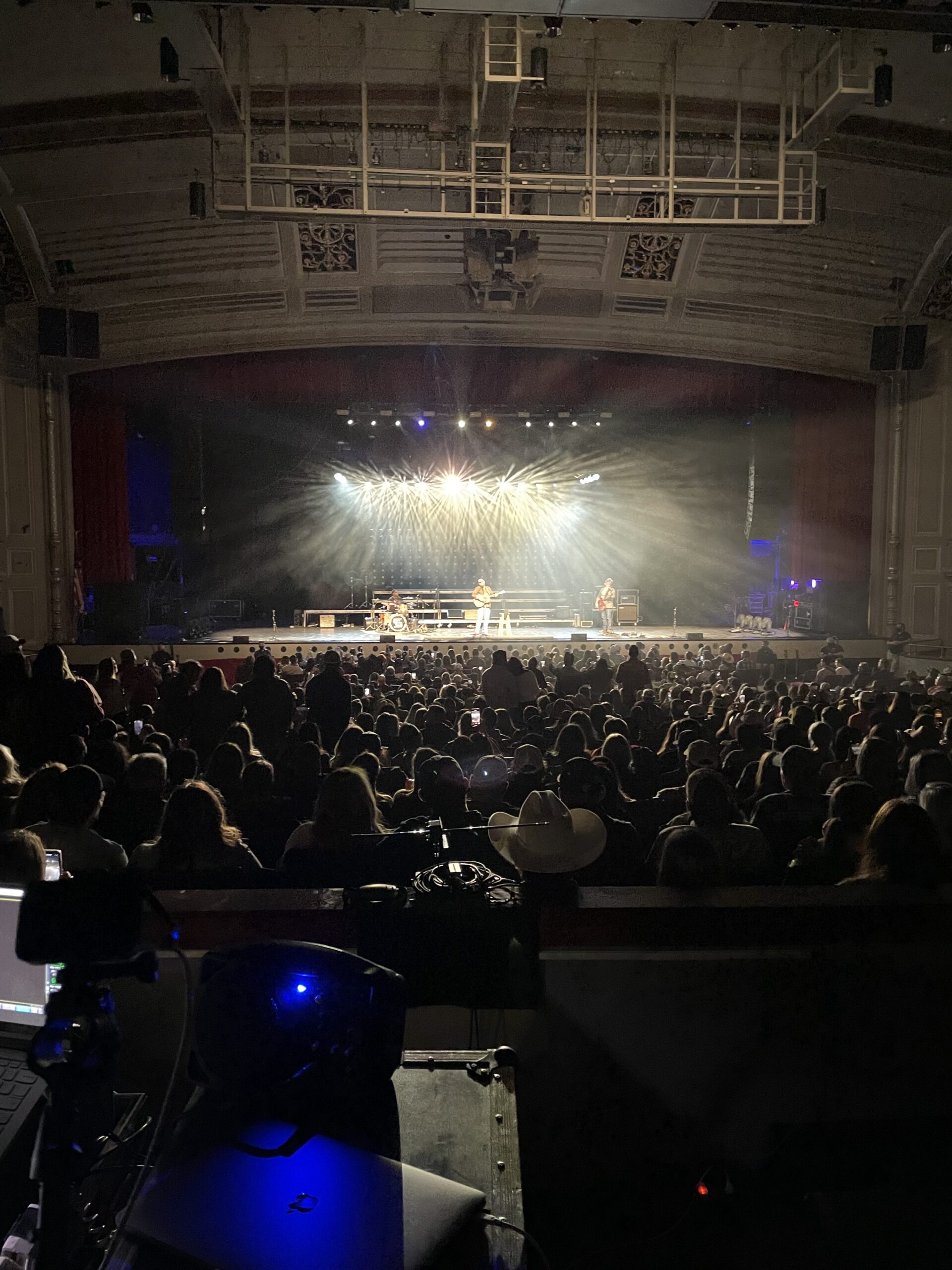My first show as a touring engineer, I was thrown into an audience of 15,000+ people; vastly different from the whatever-cap rooms of lower Broadway and other small Nashville venues, churches, and rehearsals I had come up in. I had never touched a DiGiCo outside of the one time at the Clair shop, thanks to some dear friends of mine. I had also never mixed on a large format line array.
Amid the chaos of being in an intimidating environment, I had to choose to lean into the discomfort of these new challenges. It’s daunting, but it may be the only way to effectively achieve success in this career. When the opportunity presents itself, have some grace for yourself and others, but focus on being a constant student. Nothing I mention here is rocket science, and everyone will develop their own variation – mostly this is a reflection on some of the foundations that have helped me feel grounded, stay inspired, and most importantly have fun at the beginning of my career.
The night before that first gigantic show, I stayed up studying console manuals and whatever articles on gear I could find and listened to every single song of the artist I was being hired to mix. I learned the arrangement and intention of the setlist, simultaneously referencing the multitrack I was provided to learn how the band and artist had developed the thrill of the live show. Weekend warrior-style touring allowed me to diligently study board tapes upon returning home and it equally provided time to intently review and research the notes I had gathered from the weekend.
Developing a routine came down to a few key actions. As I mentioned previously, I committed to a physical notebook. For me, every mistake and any thoughts from the day made it onto these pages, as did more technical questions regarding my mix or gear. I was also able to gather information and opinions from peers and the headliner crews, who took the time to share their mixing or system engineering techniques. Tour managers and production managers also encouraged dialogue between myself and members of the crew/band. These conversations all turned into actionable data to later provide an educational framework.
Reading was also an important part of this journey. Before touring, I consumed articles and videos regarding studio and live mixing, and Bob McCarthy’s System Design and Optimization book was visited frequently, as well as various other audio fundamental books and manufacturer’s websites. Today there are so many resources for discovering new technical blogs, videos, and plenty of resources have emerged even in the last two years to support this kind of study. You could probably ask your nearest friendly audio nerd to share their favorite with you.
Today my structure is more detailed and systematic than it initially was on that first show, although much of the routine looks the same. It has been important to take risks and push technical and creative boundaries. I am reiterating classic advice, but I challenged myself by making mistakes and asking questions (yes, even those trivial, “wrong” ones). Reading and writing have been huge for my comprehension, and I’m sure many others can emphasize this.
Being studious in these ways helps me to push my limits. I eventually leaped outside of country music to pursue another genre, for the sake of curiosity and an eagerness to learn. The fun part of our industry is that these shows can always be pushed farther; the creative and technical journey certainly never ends, and what I shared here is a small part of what has helped me achieve everything so far. I encourage you to take a moment to discover what works for you, and enjoy the process as you do!
